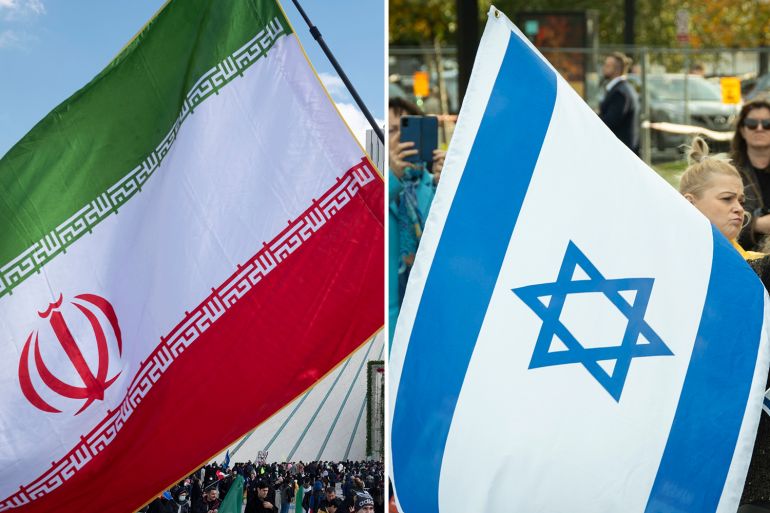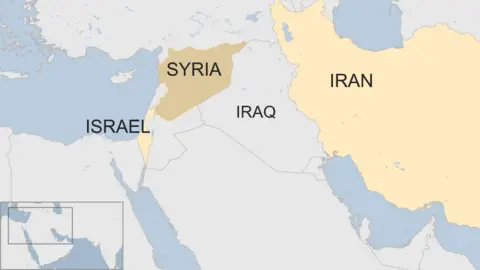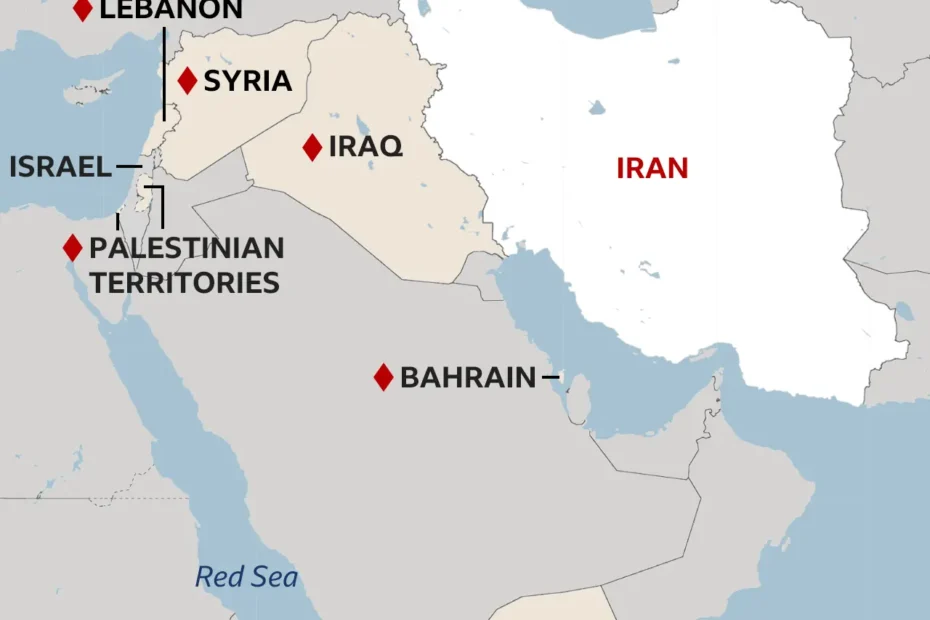Have you ever wondered why Iran and Israel seem to be locked in a constant state of tension? If so, you’re not alone.
This conflict has been a focal point in global politics for decades, affecting economies, security policies, and even your daily news feed. But what is at the heart of this friction? Understanding the reasons behind their ongoing disputes could unlock insights that enrich your view of world affairs.
This isn’t just about politics; it’s about how nations, cultures, and ideologies clash in ways that impact your life more than you might think. Prepare to delve into the roots and ramifications of this intense rivalry, and discover why it matters to you.

Credit: www.aljazeera.com
Historical Roots
Tensions between Iran and Israel stem from deep-rooted historical and political conflicts. Religious differences and territorial disputes fuel ongoing hostility. Both nations view each other’s strategic actions as threats, intensifying regional instability.
The historical roots of the conflict between Iran and Israel are complex and deeply intertwined with the political and cultural shifts in the Middle East. Understanding these roots requires looking back at the early relations between the two countries and how they evolved, particularly after the pivotal events of Iran’s 1979 revolution.Early Relations
Iran and Israel once enjoyed a period of relatively cooperative relations. Before the Iranian Revolution, Iran was one of the few Muslim-majority countries to maintain diplomatic ties with Israel. During the reign of Shah Mohammad Reza Pahlavi, Iran saw Israel as a potential ally against Arab nationalism, which was spreading across the region. Economic exchanges and strategic partnerships were commonplace. For many, this era seems like a distant memory, but it highlights how quickly geopolitical landscapes can change. Do you think such alliances could ever be possible again?Shift Post-1979 Revolution
The 1979 Iranian Revolution was a turning point that drastically altered Iran-Israel relations. The rise of Ayatollah Khomeini and the establishment of the Islamic Republic brought a new ideology to Iran’s foreign policy. This ideology viewed Israel as a symbol of Western imperialism and oppression. Iran’s stance shifted from cooperation to hostility, fundamentally altering the regional dynamics. The revolution was not just a change in leadership but a profound transformation in Iran’s identity and its approach to international relations. How do you see ideological shifts influencing global politics today?Geopolitical Interests
The conflict between Iran and Israel is complex. It involves deep-rooted geopolitical interests. Both nations seek to expand their influence in the Middle East. This struggle for power affects regional stability. It also impacts global peace efforts. Understanding their geopolitical interests sheds light on their ongoing rivalry.
Regional Influence
Iran aims to assert dominance in the Middle East. It supports various groups to gain power. These groups often oppose Israel. This support increases tensions with Israel. Iran’s influence extends through proxy groups. Israel views this as a threat to its security. Both nations compete for control and power in the region.
Strategic Alliances
Strategic alliances play a crucial role in this conflict. Iran allies with countries opposing Israel. It strengthens ties with Syria and Hezbollah. These alliances enhance Iran’s regional power. Meanwhile, Israel aligns with Western nations. It receives support from the United States. These alliances balance power dynamics in the region. They also fuel the ongoing conflict between Iran and Israel.
Nuclear Concerns
Tensions between Iran and Israel stem from historical, political, and religious differences. Iran’s nuclear ambitions raise alarms for Israel, fearing regional dominance. The ongoing conflict affects global peace and security.
Nuclear concerns form a critical aspect of the ongoing tension between Iran and Israel. The fear of nuclear weapons falling into the wrong hands is a global worry, yet for these two nations, it’s an immediate and pressing issue. Understanding their perspectives can help us grasp why the stakes are so high.Iran’s Nuclear Ambitions
Iran’s quest for nuclear capabilities has been a contentious issue for decades. The nation insists its nuclear program is for peaceful purposes, like generating electricity. Yet, many countries, including Israel, suspect otherwise. Iran’s history of secrecy around its nuclear facilities raises eyebrows. The international community’s efforts, such as the Joint Comprehensive Plan of Action (JCPOA), aimed to curb Iran’s nuclear activities but faced challenges. You might wonder if these efforts are enough to ensure transparency and peace.Israel’s Security Threat Perception
Israel views Iran’s potential nuclear capability as a direct threat to its existence. This perception isn’t just about politics; it’s about survival. The fear is that a nuclear-armed Iran could shift the balance of power in the Middle East dramatically. Israel’s proactive stance includes diplomatic measures and, at times, military operations to prevent Iran from advancing its nuclear program. It’s a tense situation that keeps many on edge, wondering if these actions prevent future conflict or exacerbate it. This security threat perception isn’t just a political stance; it’s deeply personal for many Israelis. If you lived with the constant concern of being targeted, how might you react? Understanding this mindset sheds light on why Israel is so vigilant about Iran’s nuclear ambitions. Are these fears justified, or do they fuel unnecessary tension? This question remains central to the debate over nuclear concerns between these nations.
Credit: www.bbc.com
Proxy Conflicts
Iran and Israel’s conflict stems from deep political and religious tensions. Iran supports groups opposing Israel, increasing regional instability. Israel considers Iran’s nuclear ambitions a direct threat, fueling ongoing proxy battles across the Middle East.
Proxy conflicts are indirect battles where countries use third parties to achieve their goals. Iran and Israel are engaged in such conflicts, and they heavily influence regional dynamics. These confrontations are less about direct warfare and more about strategic influence. You might wonder why they choose this path. Proxy conflicts allow them to expand their influence while avoiding full-scale war.Role In Syria
In Syria, Iran and Israel’s interests collide. Iran supports the Syrian government, providing military aid and strategic guidance. This support aims to bolster Iran’s influence in the region. You might see this as a chess game where each move is calculated to strengthen Iran’s position. On the other side, Israel is deeply concerned about Iran’s growing presence. They fear an empowered Iran right on their doorstep. As a result, Israel conducts airstrikes targeting Iranian positions in Syria. These strikes are Israel’s way of pushing back against Iran’s encroachment.Influence In Lebanon
Lebanon is another battleground for Iran and Israel’s proxy conflict. Iran has a strong ally in Hezbollah, a powerful political and military group in Lebanon. By backing Hezbollah, Iran extends its reach and power in Lebanon. It’s like having a loyal friend in a strategic location. Israel views Hezbollah as a significant threat. They worry about the group’s military capabilities and its proximity to Israel. You might ask, what’s Israel’s response? They actively monitor and sometimes engage in military actions to weaken Hezbollah’s influence. These proxy conflicts reveal a complex web of strategies and alliances. Iran and Israel are not just fighting for control but for influence over the future of the region. As you learn about these dynamics, consider how they impact global politics. What does it mean for stability in the Middle East?Economic Factors
Understanding the economic factors is key to grasping the Iran-Israel conflict. Both nations face unique economic challenges that fuel their tensions. Economic factors significantly shape their foreign policies and regional strategies.
Sanctions Impact
Iran endures heavy economic sanctions, affecting its economy severely. These sanctions limit trade, causing financial strain. Iran struggles to access global markets due to these restrictions. This economic pressure influences Iran’s regional behavior. Israel sees Iran’s economic instability as a threat. It fears Iran may resort to aggressive tactics.
Trade Dynamics
Trade dynamics between Iran and Israel are complex. Direct trade is non-existent due to political tensions. Iran seeks to boost its economy through regional trade partnerships. This quest often conflicts with Israel’s interests. Israel aims to strengthen ties with Iran’s trade partners. This competition for trade influence heightens their rivalry. Each nation tries to outmaneuver the other economically.
Ideological Differences
Iran and Israel have deep-rooted ideological differences. These differences fuel their conflict. Both countries see the world in unique ways. Understanding these perspectives is crucial. It helps us see why tensions exist between them.
Religious Perspectives
Religion plays a vital role in this conflict. Iran is predominantly Shia Muslim. Their leadership often frames political issues in religious terms. This shapes their foreign policy. They view Israel’s existence as a challenge. A challenge to their religious narratives.
Israel, on the other hand, is a Jewish state. Their history and religion are deeply intertwined. Many Israelis see Iran’s stance as a threat. A threat not just to their land, but to their identity. This religious divide adds layers to their conflict.
Political Ideologies
Iran and Israel have opposing political ideologies. Iran’s government is a theocratic republic. It combines religious authority with political power. Their leaders often promote anti-Israel rhetoric. This is part of their broader regional goals.
Israel operates as a democratic state. Its political system values individual freedoms. Israeli leaders prioritize national security. They often see Iran’s actions as aggressive. This political clash intensifies their rivalry.
International Involvement
The ongoing conflict between Iran and Israel has drawn global attention. Various international entities are actively involved, trying to manage tensions. Their roles are crucial in shaping the geopolitical landscape in the Middle East.
Us And European Roles
The US holds significant influence in Middle Eastern affairs. It supports Israel through military aid and diplomatic backing. This support is rooted in historical alliances and shared strategic interests. The US aims to counter Iran’s influence in the region. European countries also play a role, focusing on diplomacy and negotiations. They seek to balance relations with both Iran and Israel. European nations often stress peaceful resolutions and stability.
Un Interventions
The United Nations actively monitors the Iran-Israel situation. It strives to mediate through resolutions and peacekeeping efforts. The UN encourages dialogue to reduce hostilities. Its role is neutral, aiming to prevent escalation. Various UN bodies work on humanitarian aid and conflict prevention. Their interventions are pivotal in maintaining peace. Yet, challenges persist due to political complexities.
Credit: apnews.com
Potential Resolutions
Iran and Israel’s tensions date back decades, rooted in political and ideological disputes. Finding a peaceful resolution is crucial for regional stability. Various approaches may help ease these tensions. Let’s explore some potential resolutions.
Diplomatic Efforts
Diplomatic efforts play a vital role in conflict resolution. Engaging in dialogue can bridge differences. Third-party mediation can assist in this process. Countries like Switzerland or Norway have historically facilitated dialogues. Initiating talks can help build trust between nations. Trust is essential for any meaningful progress. Diplomatic channels can open doors for peaceful negotiations.
Peace Initiatives
Peace initiatives can foster understanding and cooperation. Joint projects in areas of mutual interest can promote peace. Environmental initiatives or cultural exchanges can build goodwill. Such efforts create opportunities for collaboration. Engaging civil society can strengthen these initiatives. People-to-people connections can reduce hostility. Peacebuilding requires commitment from both sides.
Frequently Asked Questions
What Is The Problem Between Israel And Iran?
Israel and Iran have long-standing tensions due to political, religious, and regional power struggles. Israel opposes Iran’s nuclear ambitions, while Iran supports anti-Israel groups. These differences lead to ongoing conflicts and diplomatic challenges.
Why Are Iran And Israel Enemies?
Iran and Israel are enemies due to geopolitical tensions, religious differences, and conflicting regional interests. Iran opposes Israel’s existence, supporting groups like Hezbollah. Israel views Iran’s nuclear ambitions and support for militant groups as threats. These tensions contribute to their long-standing enmity.
Why Did Iran Attack Israel?
Iran may attack Israel due to geopolitical tensions, regional power struggles, and ideological differences. Historical conflicts and religious factors also contribute. Iran aims to challenge Israel’s influence in the Middle East. These actions often stem from longstanding animosities and political alliances in the region.
What Is The Reason For The Israel War?
The Israel war stems from longstanding geopolitical tensions, territorial disputes, and historical conflicts between Israel and neighboring countries. Religious differences and political disagreements further exacerbate the situation, leading to ongoing hostilities and sporadic violence. Efforts for peace often face challenges due to deep-rooted mistrust and divergent interests.
What Is The Main Cause Of Iran-israel Conflict?
The conflict is mainly due to political and ideological differences. Iran opposes Israel’s existence and influence in the region.
Conclusion
Understanding the reasons behind the Iran-Israel conflict is complex. Historical tensions and political differences drive their disputes. Religion and regional power also play key roles. Both nations seek influence in the Middle East. Their rivalry affects global politics and security.
Peace efforts face many challenges. A resolution requires diplomacy and mutual respect. The world watches closely, hoping for stability. Awareness helps us grasp their intricate relationship. Continued dialogue is crucial for progress. Conflict impacts many lives beyond their borders. Seeking peace is vital for future generations.
